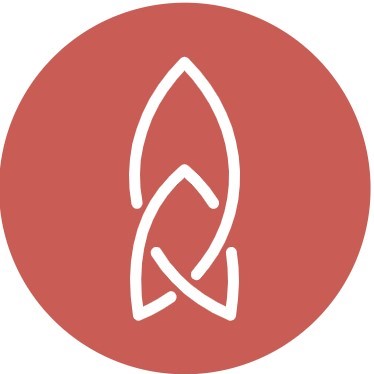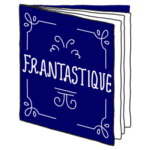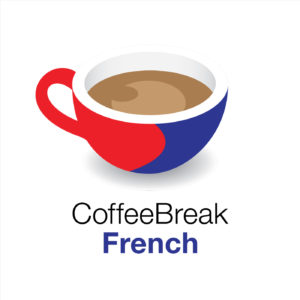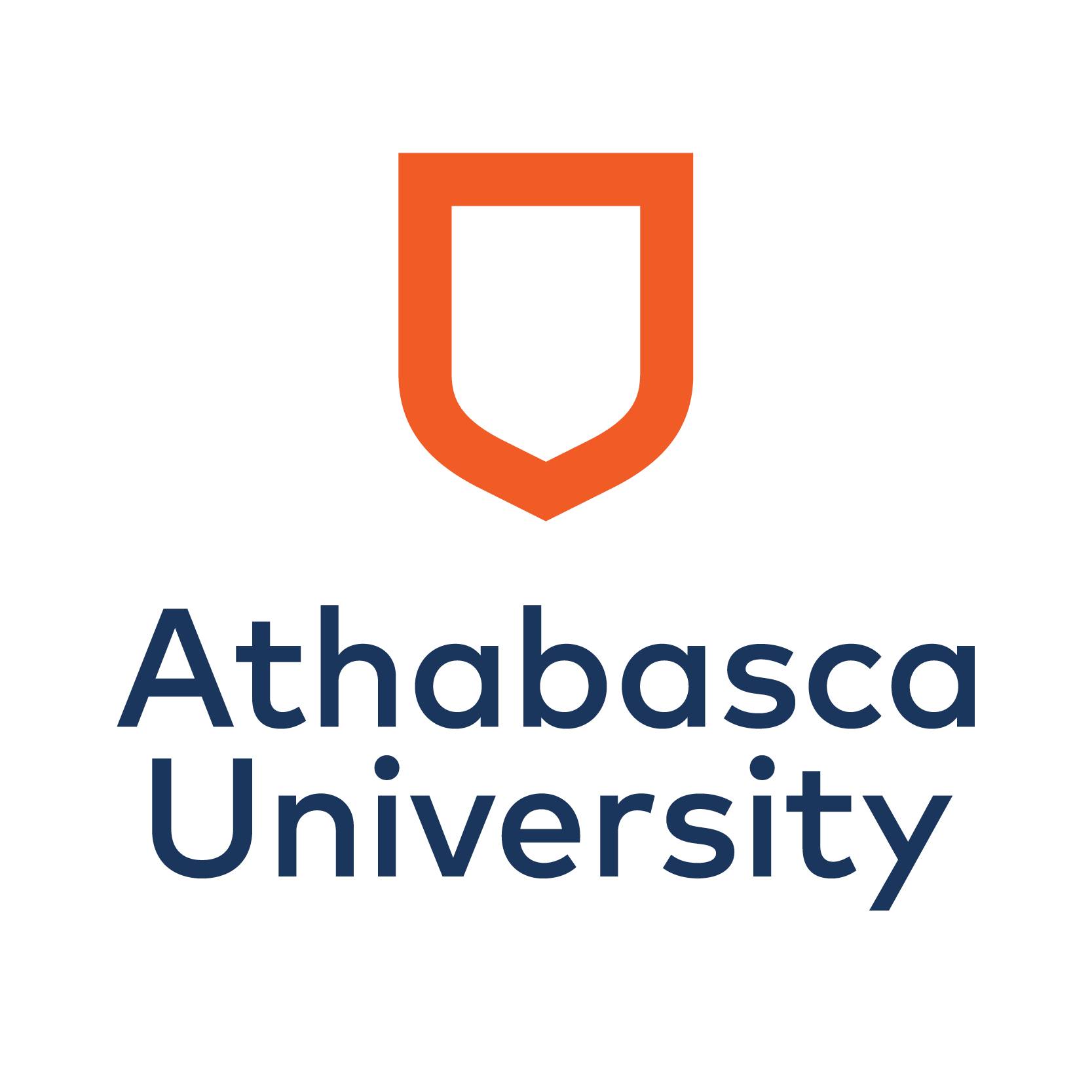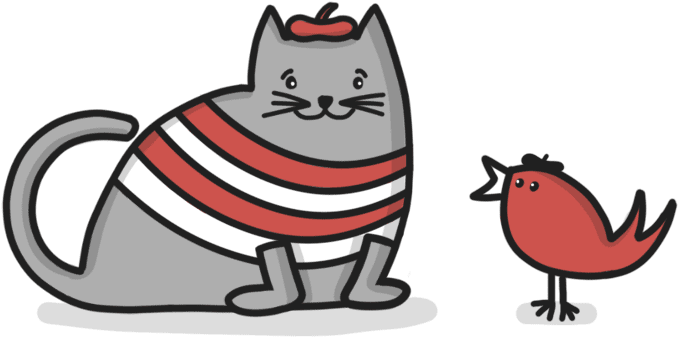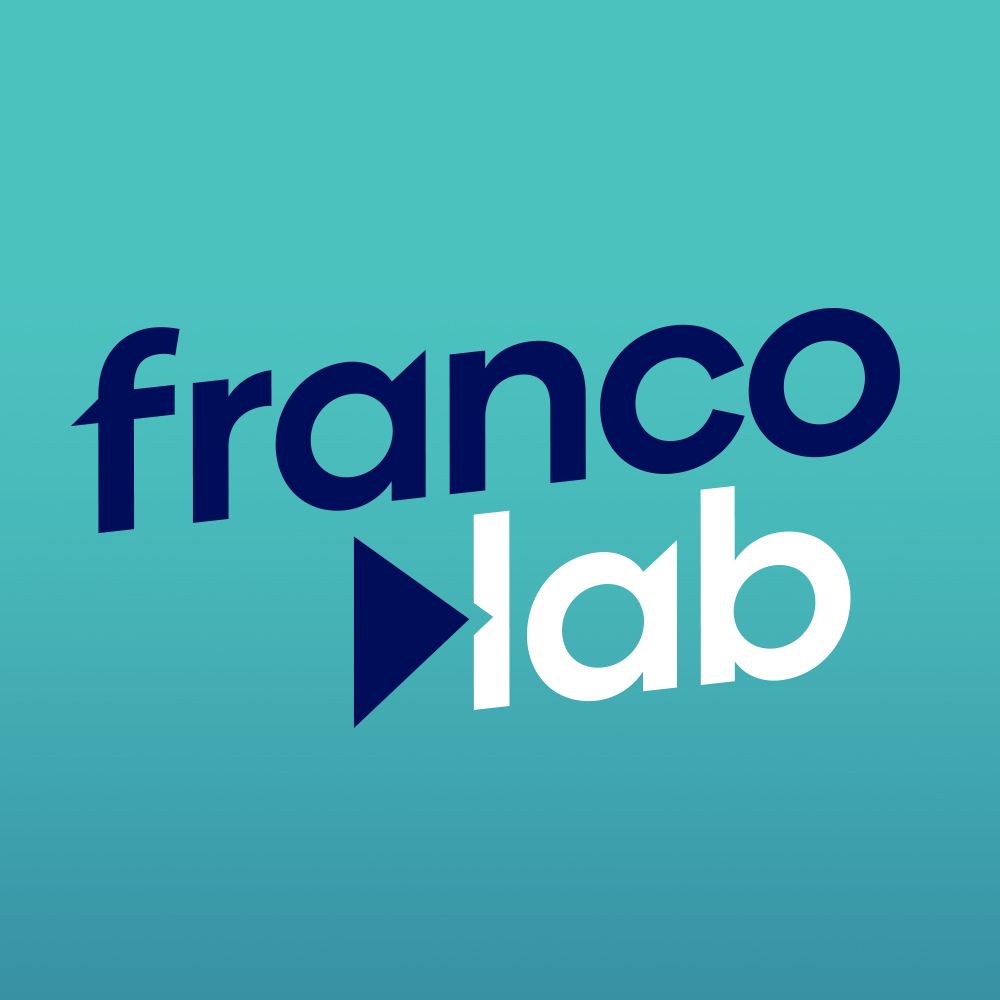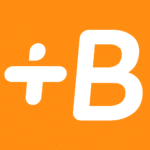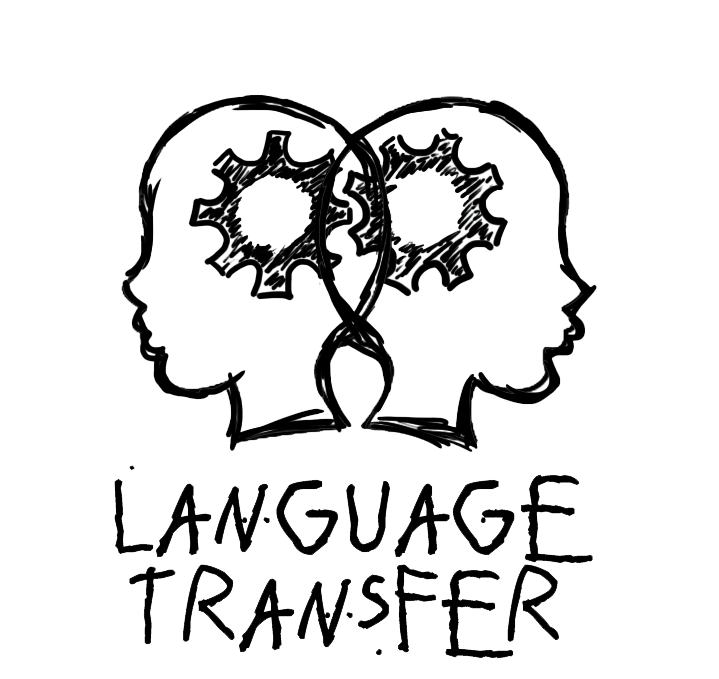
24 Best Online French Courses in 2024
Looking for French classes online?
In this post, you’ll learn exactly which online French courses I recommend for 2024, and how they’ll help you learn.
I have spent hours analyzing and reviewing these classes to sort out which ones are really worth your time. You can even check the list to see which best align with your learning needs and preferences!
Continue reading for a rundown of the 24 best online French courses you can begin today to fast track your French learning.
Contents
- 1. Best One-on-one Course: Lingoda
- 2. Best for Pronunciation: Rocket Languages
- 3. Best for Speaking: The Michel Thomas Method
- 4. Best for Social Learning: Busuu
- 5. Best for Entertaining Lessons: Frantastique
- 6. Best Podcast-based Course: Coffee Break French
- 7. Best University Course: Athabasca University
- 8. Best Story-based Course: The French Experiment
- 9. Best Accredited Course: Alliance Française Toronto
- 10. Best for Canadian French: Francolab
- 11. Best Instructor-led Course: Berlitz
- 12. Best for Learning in French: Rosetta Stone
- 13. Best for Book-based Learning: Assimil
- 14. Best Audio-focused Course: Pimsleur
- 15. Best for Flexible Learning: OUINO
- 16. Best Classroom-style Video Learning: Fluenz
- 17. Best for New Learners: Babbel
- 18. Best Budget College Course: Open Learning Initiative
- 19. Best Short-term Courses: Alison
- 20. Best Introduction Course: Learn French Online for Free
- 21. Best for Basics: Loecsen
- 22. Best for Learning to Self-study: Language Transfer French
- 23. Best YouTube Course: lingoni FRENCH
- 24. Best for Listening Practice: FrenchPod101
- How to Choose an Online French Course
- Should I Take a French Course Online?
- And one more thing...
Download: This blog post is available as a convenient and portable PDF that you can take anywhere. Click here to get a copy. (Download)
1. Best One-on-one Course: Lingoda
Pricing: Monthly plans; free trial available
Levels: All
Lingoda transfers the in-person learning experience online in as true a form as possible, offering French courses for virtually all levels of French.
Each course follows a set curriculum that is broken down into units revolving around a particular subject as well as individual lessons.
You have the option of taking the lessons one-on-one with a native-speaking French teacher, or in a group class with three to four other learners.
The lessons balance speaking, listening, reading and writing, as well as grammar explanations and practice. Each lesson also comes with a downloadable PowerPoint presentation and homework to review and reinforce your learning.
Best of all, Lingoda periodically offers its “Language Sprint.” In short, Lingoda challenges participants to complete a certain number of classes in a certain amount of days—there’s a reward for those who successfully complete the Sprint!
Read our full review of Lingoda here.
2. Best for Pronunciation: Rocket Languages
Pricing: One-time payment or payment plan; free trial available
Levels: Beginner, intermediate
Rocket Languages is an effective audio-based course for beginner and intermediate learners not on a budget.
Unlike many programs, it focuses on pronunciation. The system recognizes your voice and can provide feedback, as well as match pronunciation for thousands of words with that of a native speaker.
The lessons are audio-based and last roughly half an hour. While lessons can sometimes be repetitive, they break down grammar and vocabulary concepts and can be downloaded and used offline.
This user-friendly, classroom-style course can be accessed with a one-time (somewhat pricey) fee. I wouldn’t necessarily recommend it for an advanced student or those on a budget, but the overall course is effective.
Read our full review of Rocket Languages here.
3. Best for Speaking: The Michel Thomas Method
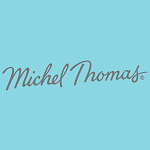 Pricing: Bundled by level; free trials available
Pricing: Bundled by level; free trials available
Levels: Beginner, intermediate
The Michel Thomas Method is one of few programs that aims to teach you conversation from the very beginning.
From day one, the course explains how to compose sentences with essential French vocabulary.
The program is audio-based and encourages you to memorize vocabulary through active use. Then, when you’re faced with a situation where you need a specific word, retrieval is much easier.
While on the pricey side for an audio course, the method teaches you French naturally, and in a way that is supposed to be less stressful than traditional methods.
Not to mention, you will have more confidence speaking French early on in your language-learning journey.
4. Best for Social Learning: Busuu
 Pricing: Free features available; monthly and yearly Premium plans
Pricing: Free features available; monthly and yearly Premium plans
Levels: Beginner, intermediate
Busuu manages to squeeze bite-sized lessons, language learning tools and a social community all onto one platform.
The free version of Busuu offers flashcards, dialogues and cultural information.
With the Premium version, you’ll gain access to the bulk of the course: grammar lessons, review quizzes, community feedback from native French speakers and more.
By connecting you with native speakers, Busuu allows you to receive corrections and practice real-time conversation, and while it may lack entertainment value, it certainly makes up for it in speaking practice and cultural tips.
Read our full review of Busuu here.
5. Best for Entertaining Lessons: Frantastique
Pricing: Monthly plans; free trial available
Levels: Intermediate, advanced
The Frantastique program sends daily emails containing an entertaining immersive French lesson with a corresponding exercise, which takes around 15 minutes to complete.
The exercises, based on grammar and vocabulary, are revised by Artificial Intelligence which feeds back your score and also provides you with explanations. With these results, Frantastique can then tailor lessons to your progress.
The program could definitely improve in the price department: With a limit on the number of lessons per week, the monthly payments (even the lowest tier) may not be worth it for some learners.
Read our full review of Frantastique here.
6. Best Podcast-based Course: Coffee Break French
Pricing: Free podcasts; one-time payment for each level course
Levels: All
Coffee Break French is a podcast-based French course, broken down into digestible five- to 20-minute episodes.
While listening and speaking seem to be the main focus, this award-winning resource also offers a comprehensive look into grammar, vocabulary and other parts of the French language.
I also found it highly enjoyable to listen to! Mark, the founder of Coffee Break Languages, is an entertaining Scottish guy who presents in a relaxed way.
There are four seasons available that correspond to different levels, and they can be found for free on iTunes and Spotify. If you’d like access to scripts, lesson notes and exercises from the Reading Club, you’ll need to pay for each season individually.
7. Best University Course: Athabasca University
Pricing: Per credit
Levels: All
If you don’t mind the college price tag, these interactive university courses come with different learning tools to practice various French skills.
Athabasca University is a primarily online university in Alberta, Canada that offers nearly 20 courses in French.
Most include online interactive classes complete with lessons, exercises and quizzes as well as audio and speaking components. Furthermore, the courses offer students interaction with the professor and other students.
Athabasca’s advanced courses may be a little less interactive, but they focus on material that you might not find in other online French courses.
Best of all, if interested, students can continue to take courses at Athabasca in order to complete an actual degree in the French language.
8. Best Story-based Course: The French Experiment
Levels: Beginner
The French Experiment was created by Aletta, who dedicated herself to teaching languages with fun cartoons after a soul-destroying job in marketing.
This website uses stunning hand-crafted images and authentic audio to teach French through online stories—all completely for free.
The collection features classic stories that come with corresponding audio, French transcriptions and English translations.
In addition to these stories, there are also 15 free French lessons covering beginner topics, including numbers, negatives, possession and more. These lessons also include slow, clear audio for the French words and phrases.
I’d recommend this one for beginners looking to start learning French in a more laid-back way.
9. Best Accredited Course: Alliance Française Toronto
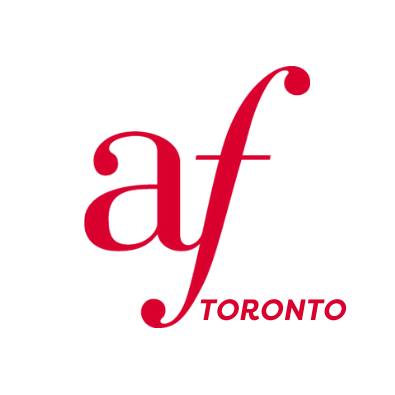 Pricing: Depends on course type
Pricing: Depends on course type
Levels: All
The Alliance Française is an international organization that promotes French language and cultures around the world.
They have many local divisions—the one listed here is the Toronto French Alliance—and many offer French courses for all levels of French.
Since the Alliance Française is such a well-known organization, its courses are recognized and accredited by the French Ministry for National Education. This allows the Alliance Française to offer courses that adequately prepare students to take the DELF and DALF exams.
Lucky for you, you can take online courses from this highly reputable organization through their Toronto branch. The courses can be done completely remotely, have offers for all levels and even allow you to focus on specialized topics.
While an online French course through the Alliance Française may be a little bit more intensive, it’s a fantastic option for those that are really dedicated to their learning journey.
10. Best for Canadian French: Francolab
Levels: All
Francolab (French Lab) is an initiative created by TV5 Québec (a television station in Québec, Canada). As such, the language used in the materials is Canadian (Québecois) French.
Francolab has various free courses and activities available for learners. Each course is based on a different video or video course.
The courses have five to eight medium-length videos which revolve around a wide variety of topics. Each lesson comes with teaching notes that include grammar and vocabulary explanations as well as quizzes.
Keep in mind that these videos are completely in French, so it is recommended to have at least a high beginner level in the language.
11. Best Instructor-led Course: Berlitz
 Pricing: Available upon request
Pricing: Available upon request
Levels: All
Berlitz is a highly customizable and flexible course that offers well-rounded material for all levels, but does come at a high cost.
Berlitz offers a variety of online French classes, including one-on-one classes, group classes and even options for government employees or corporations.
The Berlitz method is based on immersion, so your classes will be entirely in French. You will learn a wide range of materials that are available for every level.
While I do think the method is effective, it’s a bit of a risk as you don’t have access to a free trial and the course cost can be rather expensive. Additionally, the shared classes have received mixed reviews, so I’d suggest investing in private lessons.
12. Best for Learning in French: Rosetta Stone
Pricing: One-time payment or various monthly plans; 30-day money-back guarantee
Levels: Beginner, intermediate
Rosetta Stone offers immersive French learning and has features such as stories, phrasebooks and downloadable lessons.
The course works by using interactive software packed with images and sounds—giving you an experience that imitates the way in which a child learns their mother tongue.
This method means that there are no instructions or translations, just pure immersion. The learning process is broken down into units and levels. Within each level, there are numerous topics.
Rosetta Stone is also host to an online world of language learning experiences that use innovative methods to increase immersion. In the online branch of the program, there’s a variety of games, tools and resources—as well as the option of live lessons with native-speaking French coaches.
Read our full review of Rosetta Stone here.
13. Best for Book-based Learning: Assimil
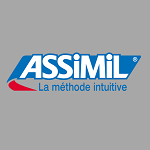 Pricing: By book/course
Pricing: By book/course
Levels: Beginner, intermediate
Assimil courses include both audio and an accompanying book for a complete learning experience. The book pairs the audio lessons with activities to further reinforce your language learning.
Audio lessons are entirely in the target language, but the book and additional materials provide translations. The best thing about Assimil is that it comes in various series and the audio is just a few minutes long.
The method places great emphasis on learning sentences through dialogues, which facilitates the development of the French learner’s ability to approach grammar and vocabulary in the way it’ll appear in everyday situations.
Be aware that it might be more difficult to find these programs outside of Europe, so if you’re in the United States, your best bet might be trying to find the material on Amazon.
14. Best Audio-focused Course: Pimsleur
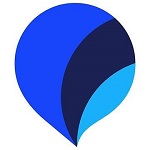 Pricing: Monthly and yearly plans; free trial available
Pricing: Monthly and yearly plans; free trial available
Levels: Beginner, intermediate
The Pimsleur approach focuses on teaching core French vocabulary through context, conversation and spaced repetition.
All the words you learn will reappear at specific intervals to help your brain retain the new vocabulary in your long-term memory.
This course is audio-based. You’ll be presented with native speakers pronouncing a sentence or having a discussion, followed by an English translation. As with the Assimil method, this facilitates learning French through sentences and situations.
Pimsleur is ideal for learners who thrive with interactive audio-learning methods. Each lesson is up to 30 minutes in length, so it’s not too difficult to slot into your daily schedule.
Read our full review of Pimsleur here.
15. Best for Flexible Learning: OUINO
 Pricing: One-time payment or various monthly plans; free demo available
Pricing: One-time payment or various monthly plans; free demo available
Levels: All
OUINO doesn’t employ a linear-based approach to learning. It runs with the idea that learners may not enjoy learning based on a strict level system, since the whole matter can be quite subjective.
With OUINO, there’s no strict order to your French lessons. You have the choice of taking up the “recommended learning path,” which gives you a flexible map of where you may want to start and end.
The primary method of teaching in this comprehensive course relies on audio and visual content. You can expect most of your lessons to encourage you to practice French reading, listening and speaking most.
OUINO can be a good choice if you find that you learn best when you create your own lesson plan, or if you typically feel stifled with a pre-planned study agenda.
Though you do have to download this program to your device, it has a lot to offer to French learners with over 440 lessons and 1,200 exercises.
16. Best Classroom-style Video Learning: Fluenz
 Pricing: Bundled by level
Pricing: Bundled by level
Levels: Beginner, intermediate
Fluenz works best for beginner learners who want to learn the material they expect to use right away. It’s also good for those who enjoy having a teacher explain things.
Fluenz courses are primarily video-based and are split up into levels. Each level provides an arranged agenda of lessons taught by a dedicated instructor.
Much of the material is topic-centered, meaning that the French taught in each session homes in on a certain context. Each level consists of about 30 sessions, and a lesson can last about 45 minutes.
Once you learn the concepts from the video tutorials, you can then immediately start on some review exercises that test you on your French writing, reading, listening and speaking.
Repetition is also a big focus of this program. Any new material you learn will be repeated often. The program also has extra resources for learners who want to slip in more practice throughout their day, such as flashcards and supplementary audio lessons.
17. Best for New Learners: Babbel
Pricing: One-time payment or various monthly plans; 20-day money-back guarantee
Levels: Beginner
Babbel is probably one of the most well-known and widely-used online language-learning platforms worldwide.
Babbel does a great job focusing on advancing certain language skills. There are specific lessons and exercises for listening, speaking, grammar and idioms in French, for example.
In terms of lesson structure, the specific layout varies for each course. Most feature a dialogue with audio coupled with grammar- and vocabulary-building opportunities. Babbel’s lessons are followed by exercises that reinforce learned concepts.
Overall, Babbel will help get you started learning French, but expect to have to find something else once you reach a higher level—there’s little to nothing available for intermediate and advanced French learners.
Read our full review of Babbel here.
18. Best Budget College Course: Open Learning Initiative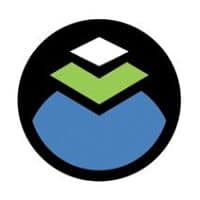
Pricing: Depends on the course
Levels: Beginner, intermediate
The Open Learning Initiative, which has roots in Carnegie Mellon University, offers mostly lower-level French courses online for very affordable costs.
These university courses combine standard online course structures with multimedia interactivity. They are based on authentic videos and include exercises and a final exam.
Lessons typically revolve around real-world videos shot in French-speaking regions like Quebec and France. The courses take you through basic skills such as introducing yourself, ordering food and the foundations of French grammar.
Topics get more advanced as you get further into the courses. By the end, you should be well-equipped to enter an intermediate course or follow an intermediate French self-study program.
19. Best Short-term Courses: Alison
 Pricing: Free courses; pay for certificates, diplomas and premium features
Pricing: Free courses; pay for certificates, diplomas and premium features
Levels: Beginner
Alison offers French courses for those at the beginner stage. For example, the French for Beginners course has three modules for students to begin their French adventure.
For slightly more advanced learners, Alison offers Improving Your French Language Skills and even a Diploma in French Language Studies to prove your competency in basic French.
For each course, each module includes a video dealing with a specific topic. Afterward, the video leads to the exploration of a particular set of vocabulary or grammar explanations, such as the present, past and future tense.
The online French courses offered on Alison are fairly academic in nature. Each module includes an assessment, and learners need to earn an 80% in all assessments to pass the course. Courses are typically between three to 20 hours total.
20. Best Introduction Course: Learn French Online for Free
Levels: Beginner
This course is based on the Foreign Service Institute’s audio course and provides a good base of the language if you don’t mind the simple interface.
Learn French Online for Free offers two courses for beginners that learners can follow chronologically to get a good basis in the French language.
Each course includes 12 lessons, and there are two assessments per course for learners to test their understanding.
Lesson topics include the city, hotels and food, and there are in-depth explanations for crucial grammatical information. Each lesson also has extensive practice drills based on the taught vocabulary and grammar.
Given that this was designed by the US government for diplomats and military personnel, I think the content of the course is great; however, it’s only sufficient for beginners and won’t do much to advance your knowledge beyond that level.
21. Best for Basics: Loecsen
Levels: Beginner
Loecsen’s French course is based on interactive audio flashcards that include translation, audio and visuals.
There are 17 “themes” (lessons) that contain a certain amount of vocabulary words and sentences related to the lesson topics.
Topics include transportation, feelings and family, for example. Each flashcard contains one of these words or phrases with an English translation, a French audio recording and a helpful visual.
After reviewing the flashcards, learners can take the lesson quiz to solidify understanding.
Each lesson also includes a “read aloud” activity of real French audio or writing such as a song or a poem. After listening to each line, learners are prompted to record their own audio to practice pronunciation.
22. Best for Learning to Self-study: Language Transfer French
Levels: Beginner
Language Transfer offers a pretty unique way to learn French.
For starters, the course is completely auditory, so there are no written materials. Instead, you listen along to the host and the student, participating in the lesson yourself.
By the end, you discover that all the pieces introduced during the lesson are part of a larger puzzle, and the host has bypassed a lot of the unnecessary extras in order to help the learner communicate quickly and easily in French.
Language Transfer uses the “Thinking Method” to teach learners how to learn French so they can self-study after they complete the course.
This course is a great free introduction for beginners, but I do think learners should also follow more traditional methods as a supplement so they can grasp some of the technicalities of French.
Read our full review of Language Transfer here.
23. Best YouTube Course: lingoni FRENCH
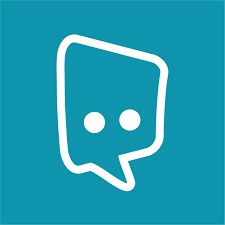 Pricing: Free videos; pay for supplemental materials
Pricing: Free videos; pay for supplemental materials
Levels: Beginner, intermediate
The lingoni FRENCH channel is a full-service French course available for free on YouTube.
The videos are sorted into playlists, offering multiple options for learners from the A1 (complete beginner) to the B2 (high intermediate) levels.
They also offer playlists based on different learning skills, such as listening practice, pronunciation and important phrases.
While the videos on YouTube are free, the real value of lingoni FRENCH comes from their paid course add-ons.
On their website (linked in Pricing above), paying subscribers can access worksheets as well as exercises for grammar and vocabulary, listening comprehension, podcasts and additional video content to enhance their French.
24. Best for Listening Practice: FrenchPod101
Pricing: Some free content; monthly plans available
Levels: Beginner, intermediate
This is a podcast-based online French course that gives great listening practice (but not a whole lot else).
Not only does this course include hundreds of audio lessons, each comes with tools that enhance your learning, including transcripts, pronunciation practice, quizzes and flashcards.
While this program is great for listening practice if that’s what you need, I’d suggest that you use this more as a supplemental course and look elsewhere for speaking, reading and writing practice.
And note that although the FrenchPod101 course does claim to offer advanced content, it isn’t exactly what you’d expect—even the audio rate is not up to native-speaker pace.
Read our full review of FrenchPod101 here.
How to Choose an Online French Course
Regardless of level, you want a French course that’s about equal parts vocabulary and grammar. Make sure the course will teach you useful vocabulary while also giving you in-depth (yet easy-to-understand) grammar explanations.
Furthermore, the best online French courses will have ample exercises and activities built-in so that students get a chance to practice the material they’ve been taught.
Ideally, an online course should have features that allow you to grow in the four language learning areas (listening, speaking, reading and writing).
Here are some additional things to keep in mind while making your decision:
- Cost — Many high-quality courses are free, but there are also lots of worthwhile courses that you’ll need to dig into your bank account for. Figure out early on how much you’re willing to pay for your learning. The more comprehensive (or specialized) the course, the more you might pay for it.
- Lesson length — Some programs may have lessons that expect you to dedicate a set amount of time, while others may let you start and end your learning whenever you’d like. How much time are you willing to commit? When do you prefer to learn? You’ll want a course that conforms to your schedule and study habits.
- Technical requirements — You may need an active internet connection, an account or the ability to download the course content. If you won’t always have reliable internet, look for a program that has offline capabilities, or even an app version that you can bring with you anywhere.
Take some time to really think about what you want out of your course, and then find the French learning program that addresses most of your needs. Don’t forget to take advantage of any available free trials!
Should I Take a French Course Online?
Some people tend to work better in a structured classroom, while others may thrive doing their own thing and flitting between different resources.
Overall, though, the majority of people will find that online French courses are super helpful: They provide direction, support and motivation to varying degrees.
There are many different kinds of courses adapted to different styles of learning (and reasons for learning!), so you’re bound to find something appropriate for you.
You might even take a couple courses in order to cover all your learning needs. You can also supplement your learning with French apps or an immersive program like FluentU.
FluentU takes authentic videos—like music videos, movie trailers, news and inspiring talks—and turns them into personalized language learning lessons.
You can try FluentU for free for 2 weeks. Check out the website or download the iOS app or Android app.
P.S. Click here to take advantage of our current sale! (Expires at the end of this month.)
With these courses, you can attend a French class without leaving your home. But how much that class resembles a traditional one is entirely up to you.
So click away, and see the best French courses the internet has to offer!
Download: This blog post is available as a convenient and portable PDF that you can take anywhere. Click here to get a copy. (Download)
And one more thing...
If you like learning French on your own time and from the comfort of your smart device, then I'd be remiss to not tell you about FluentU.
FluentU has a wide variety of great content, like interviews, documentary excerpts and web series, as you can see here:

FluentU brings native French videos with reach. With interactive captions, you can tap on any word to see an image, definition and useful examples.

For example, if you tap on the word "crois," you'll see this:

Practice and reinforce all the vocabulary you've learned in a given video with learn mode. Swipe left or right to see more examples for the word you’re learning, and play the mini-games found in our dynamic flashcards, like "fill in the blank."

All throughout, FluentU tracks the vocabulary that you’re learning and uses this information to give you a totally personalized experience. It gives you extra practice with difficult words—and reminds you when it’s time to review what you’ve learned.
Start using the FluentU website on your computer or tablet or, better yet, download the FluentU app from the iTunes or Google Play store. Click here to take advantage of our current sale! (Expires at the end of this month.)

